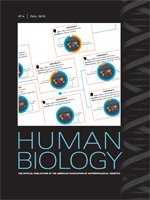Despite major public health initiatives, significant disparities persist among racially and ethnically defined groups in the prevalence of disease, access to medical care, quality of medical care, and health outcomes for common causes of morbidity and mortality in the United States. It is critical that we develop new and creative strategies to address such inequities; mitigate the social, environmental, institutional, and genetic determinants of poor health; and combat the persistence of racial profiling in clinical contexts that further exacerbates racial/ethnic health disparities. This article argues that medical education is a prime target for intervention and that anthropologists and human population geneticists should play a role in efforts to reform US medical curricula. Medical education would benefit greatly by incorporating anthropological and genetic perspectives on the complexities of race, human genetic variation, epigenetics, and the causes of racial/ethnic disparities. Medical students and practicing physicians should also receive training on how to use this knowledge to improve clinical practice, diagnosis, and treatment for racially diverse populations.
How to translate text using browser tools
1 October 2015
Combating Racial Health Disparities Through Medical Education: The Need for Anthropological and Genetic Perspectives in Medical Training
Deborah A. Bolnick
ACCESS THE FULL ARTICLE

Human Biology
Vol. 87 • No. 4
October 2015
Vol. 87 • No. 4
October 2015
evolutionary medicine
health disparities
human genetic variation
medical school curriculum
RACE




